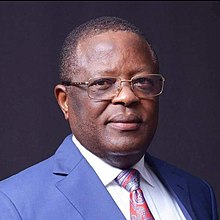(UPDATED) Vice President Yomi Osinbajo has said the approvals he granted to the NNPC while serving as Acting President were for financing arrangements for the Joint Ventures between the corporation and IOCs.They were not approvals for contracts, the Vice President declared Thursday.
Osinbajo made the clarification when he was approached by reporters after the ground-breaking multi-billion Naira historic Bonny-Bodo road project, in Bonny, Rivers State.
Said he: “These were financing loans. Of course, you know what the Joint Ventures are, with the lOCs, like Chevron, that had to procure. In some cases, NNPC and their Joint Venture partners have to secure loans and they need authorisation to secure those loans while the President was away. The law actually provides for those authorisations. So I did grant two of them and those were presidential approvals, but they are specifically for financing joint ventures and they are loans not contracts.
Earlier on Thursday, Osinbajo’s media aide, Laolu Akande, set off the online media storm when tweeted on the same matter.
Akande said: “In response to media inquiries on the NNPC Joint Venture financing arrangements, VP Osinbajo, as Acting President, approved the recommendations after due diligence and adherence to established procedures. This was, of course, necessary to deal with huge backlog of unpaid cash calls which the Buhari administration inherited, and to incentivize much needed fresh investments in the oil and gas sector.”
This was swiftly reported to mean that the VP approved the contracts,an impression he has denied.
But the row between Minister of State Petroleum Resources,Ibe Kachikwu and the GMD NNPC which ignited the issue of approvals for contracts or lack of it, is apparently not over yet .
In a further clarification Thursday night,Akande described as misleading reports suggesting that the Vice President approved certain procurement contracts for the Nigerian National Petroleum Corporation (NNPC)”
He said “This is totally false, as the approvals referred to were actually for financing arrangements in replacement of the traditional Joint Venture Cash Call obligations.
Akande said “In the statement of NNPC recently released in response to allegations made by the Minister of State for Petroleum Resources, reference was made to various financing arrangements with NNPC’s Joint Venture Partners, which were approved by the Presidency under the current administration.
“There were three such loan financing arrangements made for:(i) NNPC/Chevron Joint Venture Project; (ii) NNPC/Chevron Accelerated Upstream Production Project; (iii) NNPC/Shell/Total/Agip Joint Venture Accelerated Upstream Production Project
“While the first was approved by the President in person, the second and third were approved by the Vice President as Acting President.
“The NNPC Act, Cap. N. 123, Laws of the Federation, (updated to 2010), authorises the Corporation to borrow such sums as it may require in the exercise of its functions.
“Sub section (2) goes further to specify the only precondition: ‘The Corporation shall not, without the approval of the President, borrow any sum of money whereby the amount in aggregate outstanding on any loan or loans at any time exceeds such amounts as is for the time being specified by the President.’
“Furthermore, subsection (4) provides that ‘Where any sum required aforesaid – a. is to be in currency other than Naira; and (b). is to be borrowed by the Corporation otherwise than temporarily, the Corporation shall not borrow the sum without the prior approval of the President.
“These financings are purely commercial loans obtained by NNPC and its Joint Venture partners, mainly from local and foreign banks, to perform their exploration and production activities. Repayments are also made out of revenues from the crude oil produced directly by the funded project. Unfortunately, they are being confused with contracts for goods and services.
“The alternative financing arrangements became necessary as inability of Government to meet its cash call obligations had stalled further investments in the petroleum sector and reduced the country’s production capacity.



